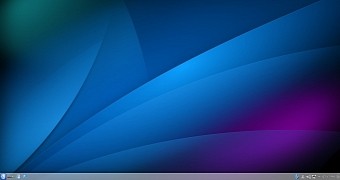The Slackware community has announced that the second Beta build of the upcoming Slackware 14.2 Linux operating system is now available for download and testing from the usual channels.
According to the brief release notes, Slackware 14.2 Beta 2 brings the final release closer to reality by patching all the issues that have been reported by users since the previous Beta build. At the same time, it also updates the core components and applications to their latest versions at the moment of writing this article.
Among the new changes implemented in this second Beta build of the upcoming Slackware 14.2 Linux operating system, we can notice the recently released and long-term supported Linux 4.4.1 kernel, the addition of a new script called rc.cpufreq for setting the CPU frequency scaling, and Adwaita as the default icon theme.
Several packages have been updated
What else is new in Slackware Linux 14.2 Beta 2? Well, many packages have been updated, and among the most important ones, we can mention Mercurial 3.6.3, Coreutils 8.25, lvm2 2.02.141, OpenSSL 1.0.2f, cups-filters 1.8.1, Gutenprint 5.2.11, Binutils 2.26, Cmake 3.4.3, GStreamer 1.6.3, PulseAudio 8.0, GTK+ 3.18.7, XTerm 3.2.2, and PHP 5.16.7.
Moreover, the second Beta build of Slackware Linux 14.2 also adds OpenSSH 7.1p2, Mesa 3D Graphics Library 11.1.1, NetworkManager 1.0.10, Calligra 2.9.10, LLVM 3.7.1, SoX 14.4.2, mpg123 1.22.4, LXC 1.1.5, XChat 2.8.8, Pidgin 2.10.12, SeaMonkey 2.39, Mozilla Firefox 44.0, HexChat 2.10.2, Gparted 0.25.0, ProFTPD 1.3.5a, traceroute 2.0.21, and MPlayer-1.2.
If you're planning on helping the Slackware devs find bugs before the final release gets out, which should happen in the coming months, you need to download the installable-only ISO images for Slackware 14.2 Beta 2 right now via Softpedia. You can also get them directly from the project's website, where you can find all the details you need to install the OS. At the moment, ISOs are provided for both 32-bit and 64-bit hardware architectures.

 14 DAY TRIAL //
14 DAY TRIAL //